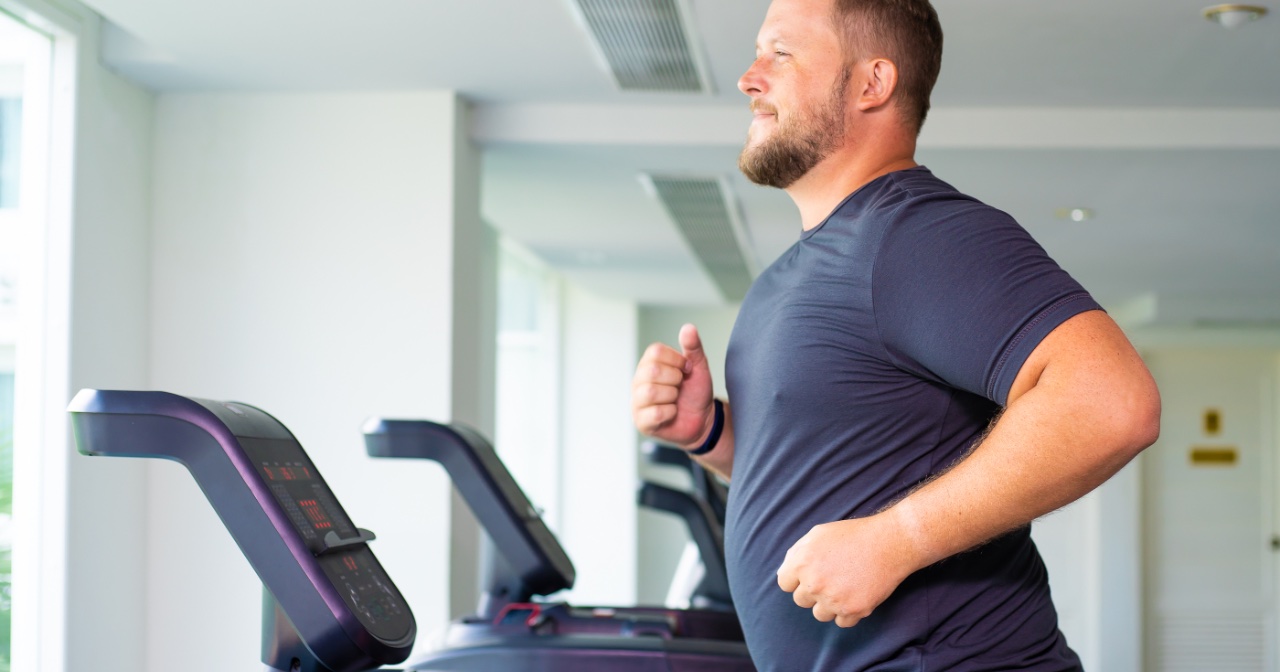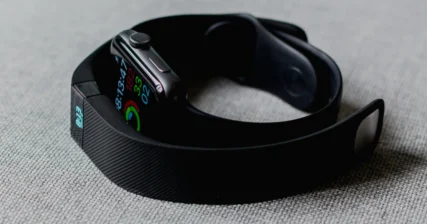Listen on: Apple Podcasts | Spotify
Can you lose weight without doing cardio? Should you even do cardio as part of a weight loss program?
If you asked the average person how to lose weight, they’d tell you, “eat fewer calories and do lots of cardio.” Heck, if you asked the average, inexperienced personal trainer, he or she would probably say the same thing.
If you asked a VIGOR Training member, they’d (hopefully) tell you, “Eat more protein, follow a good strength training plan, and get at least seven hours of sleep each night.”
At least that’s what I tell them.
Not only can you lose weight without doing any cardio; for most people, I recommend avoiding cardio as part of a weight loss or fat loss program, at least until they’re very near their goal weight. Here’s why.

Feel Better Fast. Guaranteed.
Energy+, EDGE, and MentaBiotics make up the Happy Juice supplement stack, with ingredients clinically proven to:
- decrease anxiousness scores by 55%
- decrease irritability scores by 60%
- decrease fatigue by 64%
- decrease anger 54%
- decrease tension by 45%
- decrease confusion by 43%
- decrease overall distress by 49%
- increase good bacteria by 70%
- decrease negative mood by 105%
- increase positive mood by 211%
Weight loss isn’t just about calories in, calories out.
Calorie counts are the crack that keeps people on cardio. The more calories they burn, the faster the weight comes off. Or so they hope.
You’ve probably seen this fat loss math multiple times:
- A pound of fat contains 3500 calories
- To lose a pound of fat per week, you need to create a 3500 calorie deficit
- If you burn 500 calories more than you eat each day, in a week, you’ll lose a pound of fat
It doesn’t work that way. At all. Here’s why:
- The calorie counts on cardio equipment are woefully inaccurate
- Calorie counts on unprocessed and prepackaged foods are also inaccurate
- Your daily calorie expenditure fluctuates significantly based on stress levels, immune system activation, sleep patterns, hormonal cycles (in women), the temperature of your environment, etc.
- The calories you burn vary based on the types of foods you eat, your hormones, mood, medications, dietary supplements, and more.
Your body’s management of energy is way more complicated than the calorie balance equation suggests.
I could go on an on. The point is this: Burning calories is not the most important aspect of losing body fat. And if burning calories isn’t the most important, then doing cardio to burn more calories probably doesn’t make sense.
Cardio can cause muscle loss, which makes it harder to store carbs and burn fat.
You want to store carbs and burn fat.
Where do you store carbs? In your liver and skeletal muscle. The more muscle you have, the more carbs you can store.
If you don’t have much muscle, either because you follow a very low-calorie diet or do an excessive amount of cardio, you won’t have anywhere to put the carbs in your diet. When you eat them, they stay in your bloodstream, which triggers insulin, which causes you to store fat and burn sugar.
The more cardio you do, the more muscle you can lose.
As your body adapts to cardio, it sheds extra muscle to make your endurance training easier.
Cardio can also increase cortisol levels, which further breaks down muscle.
Also, each pound of muscle you have burns a small number of calories each day.
The more muscle you have, the more you calories burn, even when sitting still. So, if you do cardio and lose muscle, you lose the ability to burn those calories.
Cardio can suppress thyroid function.
Adding endurance training or cardiovascular exercise and keeping the diet the same can lead to hypothyroidism.
The greater the gap between the amount of food consumed and the amount of cardiovascular exercise completed, the lower your thyroid levels can decline.
As thyroid levels fall, metabolic rate declines, and your mental and physical energy dissipate. That makes it harder to keep seeing weight loss and makes it more challenging to exercise even if you want to.
Weight training, walking, and a high-protein diet: A better approach to weight loss.
For most people, weight training, walking, and a high-protein diet are a much better weight loss approach.
Weight training helps you build muscle, boosts your metabolic rate, stimulates growth hormone and testosterone, and increases your capacity for carbohydrates. It does a lot of other good stuff outside of supporting weight loss.
Your weight training should be intense enough to build denser, stronger muscles, so I’m not referring to a few pushups and sit-ups in front of the TV or workouts using only your body weight. I’m referring to well-designed strength training programs, like those included with my VIGOR Training membership.
A high-protein diet is more thermogenic, curbs your appetite, supports the maintenance or growth of muscle mass, and helps you maintain more stable blood sugar and insulin levels.
As for the walking, the intent is to get you out of your chair a few times each day. The brief movement helps you avoid the adverse effects on your metabolism and mobility from the sedentary lifestyle so many people live, including those who workout regularly.
Read also: How to Gain Muscle Without Gaining Fat.
Exceptions: When cardio is more important than resistance training
While this approach works much better for most people, there are a couple of exceptions:
- Women with Polycystic Ovary Syndrome (PCOS): Most women with PCOS have a higher-than-normal testosterone level. As a result, it’s easy for them to build muscle and easy to maintain it. I usually recommend women with PCOS limit their weight training to one full-body session per week, and focus the rest of their time on cardio.
- Obese: If someone has more than 75 pounds to lose, they probably have more muscle mass than they need. The body adapts to excessive body fat by building muscle to carry it around. Obese people often have a much higher level of inflammation as well, which weight training could exacerbate. To get their weight loss moving in the right direction, I usually recommend starting with a consistent cardio program for a few months before beginning a regular weight training program.
- Physique contest prep: If you want to go from lean and healthy, to shredded for the stage in a bodybuilding contest, you’ll need to do some cardio. The leaner you get, the more your body fights to hang onto the body fat. As you get closer to contest time, you’ll probably need to do more cardio, and do everything you can with your weight training, diet, and supplements to hold onto the muscle you have.
And if you’re among those who are most concerned about their heart health, I assure you, you’ll challenge your cardiovascular system as much as your muscular system with a well-designed strength training program. After a set of squats or lunges, your heart rate will rival what it would be running up a mountainside.
If you love cardio, keep it up as long as you don’t neglect weight training. But don’t assume it’s necessary for weight loss. It isn’t.

Feel Better Fast. Guaranteed.
Energy+, EDGE, and MentaBiotics make up the Happy Juice supplement stack, with ingredients clinically proven to:
- decrease anxiousness scores by 55%
- decrease irritability scores by 60%
- decrease fatigue by 64%
- decrease anger 54%
- decrease tension by 45%
- decrease confusion by 43%
- decrease overall distress by 49%
- increase good bacteria by 70%
- decrease negative mood by 105%
- increase positive mood by 211%



